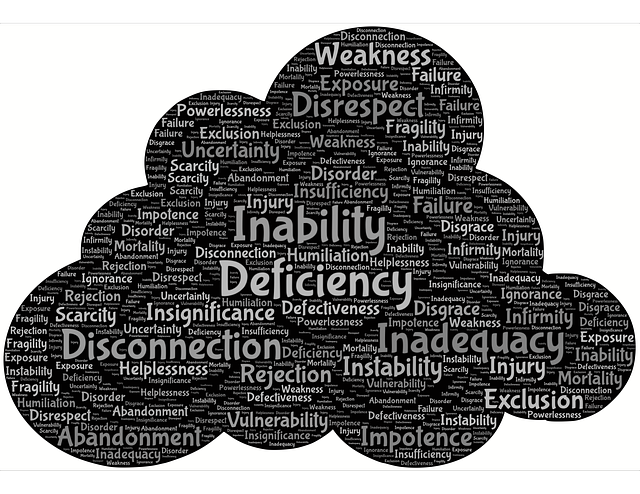Chronic anxiety, characterized by persistent worry and fear for at least six months, is a complex condition with physical, cognitive, and behavioral symptoms. It's influenced by genetic factors, brain chemistry imbalances, traumatic experiences, and ongoing stress. Effective anxiety treatment involves personalized therapy combinations, including Cognitive Behavioral Therapy (CBT) to address negative thought patterns, Exposure Therapy to desensitize patients to fears, and Mindfulness-Based Stress Reduction (MBSR) for emotional acceptance. Integrating these approaches alongside medication and lifestyle changes like exercise, nutrition, and sleep significantly enhances anxiety treatment outcomes.
“Chronic anxiety, a pervasive and debilitating condition, impacts millions. Understanding its symptoms and causes is the first step towards effective therapy. This comprehensive guide explores various treatment options, from Cognitive Behavioral Therapy (CBT) and mindfulness techniques to medication and lifestyle changes. Discover how these integrated approaches can empower individuals to manage and overcome chronic anxiety, offering lasting relief and improved quality of life.”
Understanding Chronic Anxiety: Symptoms and Causes

Chronic anxiety is a persistent and often overwhelming feeling that significantly impacts an individual’s daily life. It differs from typical, short-term anxiety in its longevity and intensity, lasting for at least six months or more. Symptoms manifest physically, cognitively, and behaviorally, affecting various aspects of an individual’s well-being. Common physical signs include a racing heart, rapid breathing, muscle tension, fatigue, and insomnia. Cognitive symptoms involve persistent worries, negative thoughts, difficulty concentrating, and a sense of restlessness. Behaviorally, chronic anxiety can lead to avoidance of situations or places that trigger fear, social withdrawal, and increased irritability.
Several factors contribute to the development of chronic anxiety, including genetic predisposition, brain chemistry imbalances, traumatic life events, chronic stress, and certain medical conditions. Genetic susceptibility plays a role in making some individuals more prone to anxiety disorders. Brain structures and neurotransmitters involved in fear processing and regulation can differ in those with chronic anxiety. Traumatic experiences, such as abuse or significant loss, can trigger long-lasting anxiety responses. Additionally, ongoing stressors at work, school, or home may contribute to the development and persistence of this condition, underscoring the need for effective anxiety treatment.
Common Therapy Approaches for Effective Anxiety Treatment

Anxiety disorders are commonly treated using a combination of therapeutic approaches tailored to address individual needs. Cognitive Behavioral Therapy (CBT) is one of the most widely recognized and effective methods for anxiety treatment. CBT helps individuals identify and challenge negative thought patterns and behaviors contributing to their anxiety, promoting healthier coping mechanisms. Through this therapy, patients learn to manage symptoms by understanding the connection between thoughts, feelings, and actions.
Another popular approach is Exposure Therapy, which involves gradually exposing individuals to feared situations or objects in a safe environment. This helps desensitize them to triggers, reducing anxiety responses over time. Mindfulness-based therapies, including Mindfulness-Based Stress Reduction (MBSR) and Acceptance and Commitment Therapy (ACT), are also gaining popularity. These practices teach individuals to stay present, accept their feelings, and commit to valued actions despite the presence of anxiety. Combining these evidence-based therapy types can significantly improve anxiety treatment outcomes.
Cognitive Behavioral Therapy (CBT): A Step-by-Step Guide

Cognitive Behavioral Therapy (CBT) is a widely recognized and effective anxiety treatment approach. It focuses on identifying and modifying negative thought patterns that contribute to chronic anxiety. CBT breaks down the process of managing anxiety into manageable steps.
First, individuals learn to recognize their anxious thoughts and emotions. This involves becoming more aware of triggers and the physical sensations associated with anxiety. Next, CBT helps challenge these thoughts by providing evidence-based strategies to replace negative or distorted thinking with more realistic and positive ones. Through gradual exposure to feared situations, individuals can confront and overcome their anxiety in a safe environment. Each step builds upon the last, fostering a sense of control and empowering individuals to manage their symptoms effectively over time.
Mindfulness Techniques for Managing Chronic Anxiety

Mindfulness techniques have emerged as a powerful tool in the arsenal of chronic anxiety treatment. By focusing on the present moment and cultivating non-judgmental awareness, individuals can learn to observe their anxious thoughts and sensations without reacting impulsively. Practices like meditation, deep breathing exercises, and mindful movement (e.g., yoga) encourage individuals to connect with their bodily experiences, helping them recognize triggers and develop a greater sense of self-awareness.
These techniques foster a shift from a reactive mindset to a more responsive one, enabling people to manage their anxiety symptoms effectively. Regular mindfulness practice can lead to improved emotional regulation, enhanced focus, and increased resilience in the face of anxious thoughts. This approach not only complements traditional therapy for anxiety treatment but also empowers individuals to develop lifelong coping strategies for managing stress and anxiety.
Medication Options: Prescribed Solutions for Anxiety Relief

Medication can play a significant role in managing chronic anxiety, offering prescribed solutions for relief. Antidepressants, specifically those from the selective serotonin reuptake inhibitor (SSRI) family, are commonly used to treat anxiety disorders as they help balance brain chemicals that impact mood and emotions. These medications can take several weeks to show effects, so patience is essential during the treatment process.
Additionally, anti-anxiety drugs like benzodiazepines may be prescribed for short-term use to manage acute anxiety symptoms. While effective, these are generally avoided for long-term use due to potential dependence and side effects. It’s crucial that individuals seeking anxiety treatment consult with a healthcare professional who can recommend the most suitable medication options based on their specific needs and medical history.
Lifestyle Changes to Complement Your Anxiety Treatment

Anxiety treatment isn’t just about medication or therapy sessions; lifestyle changes can significantly complement your journey to managing chronic anxiety. Incorporating regular physical activity, such as yoga or walking, can help reduce stress and promote a sense of calm. A balanced diet rich in nutrients supports overall well-being, improving your ability to cope with anxious feelings. Additionally, practicing mindfulness techniques like meditation or deep breathing exercises during daily activities can help you stay grounded and manage anxiety symptoms effectively.
Quality sleep is another essential component. Establishing a consistent sleep schedule and creating a relaxing bedtime routine can improve your sleep hygiene, which is vital for managing anxiety. Avoiding excessive caffeine and alcohol consumption, as well as limiting screen time before bed, can also enhance sleep quality. These lifestyle adjustments work synergistically with professional anxiety treatment to create a holistic approach, enabling you to better manage and reduce the impact of chronic anxiety in your daily life.
